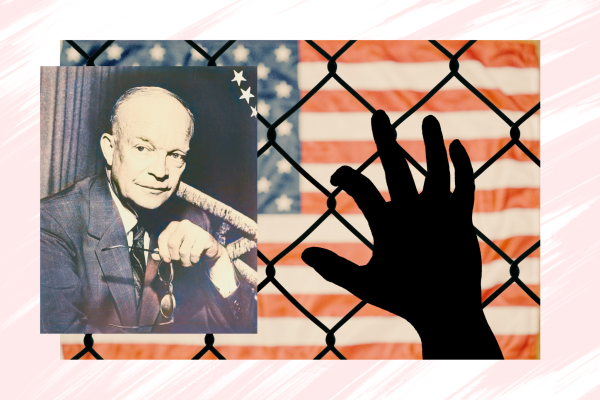On June 11, the Department of Justice (DOJ) issued a memo instructing federal prosecutors to “prioritize and maximally pursue denaturalization proceedings in all cases permitted by law and supported by the evidence.” The directive, signed by Assistant Attorney General Brett Shumate, elevates citizenship revocation to one of the Civil Division’s top five enforcement priorities.
The Trump administration is framing the expansion as a matter of public safety, with a DOJ spokesperson stating that “those who gain citizenship through unlawful means and endanger our national security will not maintain the benefits of being an American citizen.” But advocates who work with immigrants warn the policy creates a dangerous precedent, effectively rendering 24.5 million naturalized Americans as second-class citizens whose status is subject to perpetual review.
What’s the legal basis for stripping someone’s citizenship?
The government’s authority to revoke citizenship stems from Title 8 of the U.S. Code, which permits denaturalization on certain grounds: illegal procurement, concealment of material facts, or willful misrepresentation during the naturalization process. Critically, the Supreme Court has ruled that the government cannot strip someone of citizenship for conduct that occurs after naturalization—only for problems with how citizenship was originally obtained.
The constitutional framework emerged from Afroyim v. Rusk (1967), where the Supreme Court held that citizenship is “a constitutional right which Congress cannot take away” absent voluntary renunciation or fraud in procurement. The court reinforced this ruling in Maslenjak v. United States (2017), which established that false statements made during the naturalization process must be shown to have influenced the naturalization decision in order to justify revocation of citizenship.
Despite these guardrails, civil denaturalization cases—unlike criminal proceedings—have no statute of limitations, and defendants have no right to appointed counsel. The process unfolds in federal district court through civil litigation, where judges apply a lower evidence standard than criminal cases require. If successful, the individual would revert to their previous immigration status, potentially triggering deportation proceedings.
How have previous administrations used denaturalization?
Denaturalization remained largely dormant for decades before experiencing a dramatic revival during the Obama administration. The first spike in modern denaturalizations occurred during the first half of the 20th century, when more than 22,000 Americans were denaturalized between 1907 and 1967.
Afterwards, the practice became less widespread and largely targeted Nazi war criminals in cases, such as Fedorenko v. United States (1981), that involved concentration camp guards who concealed their wartime activities. Between 1979 and 2012, the DOJ’s Office of Special Investigations reportedly pursued 137 Nazi-related denaturalizations.
The contemporary expansion began with Operation Janus, which was launched by the Obama administration in 2010. A Department of Homeland Security (DHS) Inspector General report subsequently revealed that 858 individuals had obtained citizenship despite deportation orders under different identities. The additional discovery that 315,000 fingerprint records had not been digitized prompted a systematic review.
The first Trump administration went further and transformed denaturalization into an active enforcement priority. In February 2020, the DOJ created a dedicated Denaturalization Section within the Civil Division. Annual case filings jumped from 15 in 2016 to 30 in 2017, and denaturalization referrals grew by 600 percent from 2017 to 2020.
The Biden administration largely kept the first Trump administration’s denaturalization practices in place. After ordering a 60-day review to ensure denaturalization wasn’t used excessively or inappropriately, the administration merely renamed the unit as the “Enforcement Section” while keeping its expanded scope.
What crimes could lead to denaturalization under the new policy?
The DOJ’s June 11 memo dramatically expands the scope of denaturalization targets beyond traditional cases involving war criminals and identity fraud. While previous efforts focused mostly on individuals who lied during the naturalization process, the new directive instructs prosecutors to examine post-naturalization conduct that might retroactively disqualify someone from citizenship.
Priority categories now include alleged gang membership, with the memo specifically mentioning MS-13, a gang made up mostly of El Salvadorans, and Tren de Aragua, a Venezuelan criminal organization. Medicare fraud, pandemic-relief loan fraud, and other white-collar crimes made the list, as did broadly defined “national security violations.” Most controversially, the memo grants prosecutors discretion to pursue “any other cases deemed sufficiently important to merit the resources.”
The approach marks a stark departure from historical practice. Between 1990 and 2017, the DOJ averaged just 11 denaturalization cases annually. The new policy could affect thousands of naturalized citizens with any criminal history, regardless of when the offenses occurred.
Could political figures be targeted under expanded denaturalization?
While the DOJ memo doesn’t name specific targets, its broad enforcement language could lead to potential political weaponization. Several high-profile Democratic officials and candidates are naturalized citizens who could theoretically face scrutiny under the expanded criteria, though there’s no indication they’re currently under investigation.
Rep. Ilhan Omar, a Minnesota Democrat who fled Somalia as a child and became a citizen in 2000, has faced persistent but unsubstantiated allegations about her immigration history from political opponents. Under the new directive’s expansive “national security” language, prosecutors could potentially revisit any naturalization file.
Perhaps most notably, Republican Rep. Andy Ogles of Tennessee has explicitly called for denaturalizing Zohran Mamdani, the Democratic nominee for New York City mayor, over rap lyrics that Ogles claimed showed support for terrorism. A June 26 letter from the Tennessee congressman to Attorney General Pam Bondi demanded an investigation into whether Mamdani, a native of Uganda who became a citizen in 2018, concealed material information during his naturalization process. President Donald Trump himself has hinted at possible action along these lines and said last week, “A lot of people are saying he’s here illegally. We’re going to look at everything.”
On the other side of the political aisle, Trump has raised the possibility of denaturalizing and deporting South African-born billionaire entrepreneur Elon Musk, as the former political allies have fallen out over provisions in the tax-cuts-and-spending law Congress passed last week.
Musk’s immigration history offers several theoretical vulnerabilities. For instance, during his initial move to the U.S., Musk reportedly misused his visa and worked illegally for a time. While these allegations were never adjudicated, any material omission in his immigration paperwork could now theoretically serve as grounds for denaturalization, if aggressively pursued under the DOJ’s new directive.
What happens next?
The June 11 directive’s broad language opens multiple avenues for enforcement that could reshape how citizenship operates in America.
The DOJ will likely begin with clear fraud cases, such as individuals with documented criminal histories or security concerns who failed to disclose material information during naturalization. The 2020 DOJ announcement stated the Office of Immigration Litigation had “achieved great success in the denaturalization cases it has brought, winning 95 percent of the time,” and recent publicized cases like that of Elliott Duke have demonstrated strongly grounded reasons for denaturalization.
However, political weaponization remains a significant concern. The memo’s discretionary language, allowing the DOJ to pursue “any other cases referred to the Civil Division that the Division determines to be sufficiently important to pursue,” could potentially trigger investigations based on political views or activism.
With approximately 24.5 million naturalized citizens in America as of 2023, and 818,500 naturalized in FY 2024 alone, reviewing even 1 percent of naturalization files would mean examining 245,000 cases. Constitutional challenges will inevitably emerge when courts confront whether examining post-naturalization conduct violates the Maslenjak decision’s materiality requirement. Civil rights groups likely will prepare litigation arguing that denaturalization without appointed counsel violates due process.
Legislative responses face steep odds in the current Congress. The Defend New Americans Act, introduced by California Democratic Rep. Salud Carbajal in July 2020, would have prohibited federal funding for the denaturalization section, but the bill died in committee. With Republican control of Congress, even modest reforms like implementing a statute of limitations appear unlikely. Democrats could attempt to attach protective language to must-pass spending bills, but lack the votes for standalone legislation.
For naturalized citizens, the DOJ’s new denaturalization push raises the possibility that a traffic stop, an arrest during a protest, or social media post could trigger review of decades-old citizenship applications. The machinery built for a couple of hundred cases filed since 2008 now has the mandate and resources to process thousands, constrained at least for now more by prosecutorial priorities.
“In effect, this directive sends the message that those not born in the United States risk losing their citizenship for previous or future conduct, creating an unacceptable threat that a criminal charge could rip them from their communities,” stated Christopher Wellborn, president of the National Association of Criminal Defense Lawyers. “It is not difficult to imagine a scenario where the government invokes unsubstantiated claims of gang affiliation or uses an individual’s criminal record to claim that citizenship was illegally procured.”










Please note that we at The Dispatch hold ourselves, our work, and our commenters to a higher standard than other places on the internet. We welcome comments that foster genuine debate or discussion—including comments critical of us or our work—but responses that include ad hominem attacks on fellow Dispatch members or are intended to stoke fear and anger may be moderated.
With your membership, you only have the ability to comment on The Morning Dispatch articles. Consider upgrading to join the conversation everywhere.